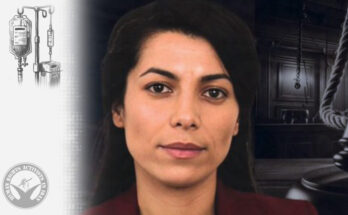Source: Iran International

The Iranian Islamic scholar Sedigheh Vasmaghi, who is currently imprisoned, is urging the international community to put an end to the ongoing oppression of women by the Iranian regime.
In a letter from prison, Vasmaghi issued the plea to the United Nations Fact-Finding Mission and other international human rights bodies, detailing her own personal abuses and the systemic oppression under the Islamic Republic’s policies.
A copy of Vasmaghi’s letter was shared with Iran International.
Vasmaghi, who writes that she has devoted a significant portion of her life to studying and teaching Islamic jurisprudence, also asserts that there is no religious mandate under Islamic Sharia for women to cover their hair.
“The result of my research on women’s clothing is that religious women are not required to cover their hair under Islamic Sharia and some independent researchers in the field of religion have come to the same conclusion,” the letter reads.
Security forces arbitrarily detained Vasmaghi on March 16 and transferred her to Tehran’s infamous Evin Prison.
Her arrest followed her public criticism of Supreme Leader Ali Khamenei as a dictator and her condemnation of the compulsory hijab laws, which have been central to the 2022 Women, Life, Freedom movement sparked by Mahsa Jina Amini’s death at the hands of the country’s so-called morality police.
“Many Iranian women have been against the mandatory hijab law for decades, and I have removed my headscarf in opposition to this law and to protest against the oppression of women and their dignity,” Vasmaghi wrote.
Vasmaghi was subjected to interrogation without the presence of legal representation and transferred to prison without due legal process.
During her imprisonment, Vasmaghi says she has endured numerous hardships.
She has been denied access to legal counsel, appropriate medical treatment, and even basic accommodations for her disability. Her requests for assistance have been ignored, and she has been isolated from her family for refusing to wear a hijab. Additionally, she has suffered from health issues, exacerbated by stress and initially neglected by prison authorities.
Vasmaghi’s opposition and protest extend beyond the mandatory hijab law itself to encompass the broader suppression of women’s rights and dignity in Iran.
She maintains that the enforcement of such laws is not based on religious grounds but rather is a misuse of political power, inflicting psychological, physical, and financial damage on women.




